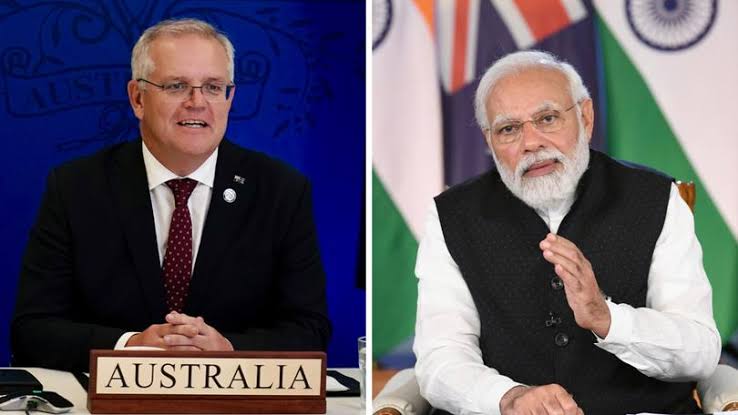Australia-India Trade deal comes into force

The Australia-India Economic Cooperation and Trade Agreement was signed between the two nations on April 2 and now has come into force. According to the agreement, the exporters of Australia will benefit from two tariff cuts in quick succession, the first taking place 29 Dec and the second, on 1 January 2023.
In a press statement, the Australian government said the trade agreement will support tourism and workforce needs in regional Australia by making 1,000 Work and Holiday Program places available to young Indian travellers. The Australian Trade Minister Don Farrell said that the agreement will create the potential for a trading relationship between the two nations.
As the Australia-India Economic Cooperation and Trade Agreement (ECTA) came into force, Prime Minister Narendra Modi on Thursday described this as a “watershed moment” for Comprehensive Strategic Partnership between the two sides and said it will unlock the enormous potential of trade and economic ties.
“Glad that Ind-Aus ECTA is entering into force today. It is a watershed moment for our Comprehensive Strategic Partnership. It will unlock the enormous potential of our trade and economic ties and boost businesses on both sides. Look forward to welcoming you in India soon,” PM Modi tweeted.
From today Australian businesses have greater access to the Indian market of 1.4 billion people, and one of the world’s fastest-growing major economies. An unprecedented window of opportunity has opened for Australian exporters to move into an export market valued at over USD 24 billion in 2021, ahead many of Australia’s key competitors.
“Effective today, we have eliminated tariffs on over 85 per cent of Australian exports to India and locked them in at zero. This includes key exports such as wool, lamb, barley, oats, fresh rock lobsters, cosmetics and many metallic ores, critical minerals, non-ferrous metals and titanium dioxide,” the Australian government said in a press release.
It further stated that tariffs on a further 5 per cent of exports, including macadamia nuts, avocados, berries, seafood, pharmaceuticals, cochlear implants, vitamins, infant formula, breakfast cereals, pasta, sandalwood chips, pumps and fillers, excavating machinery parts and lifting machinery for mines, are lower today and will be reduced to zero within 6 years.




